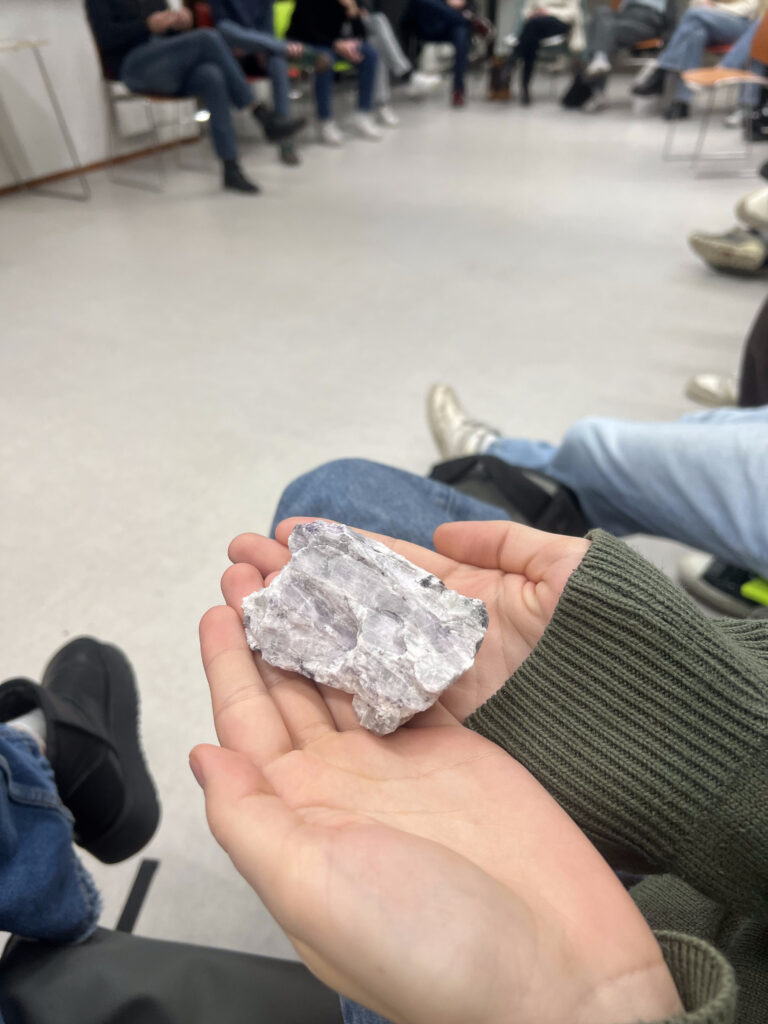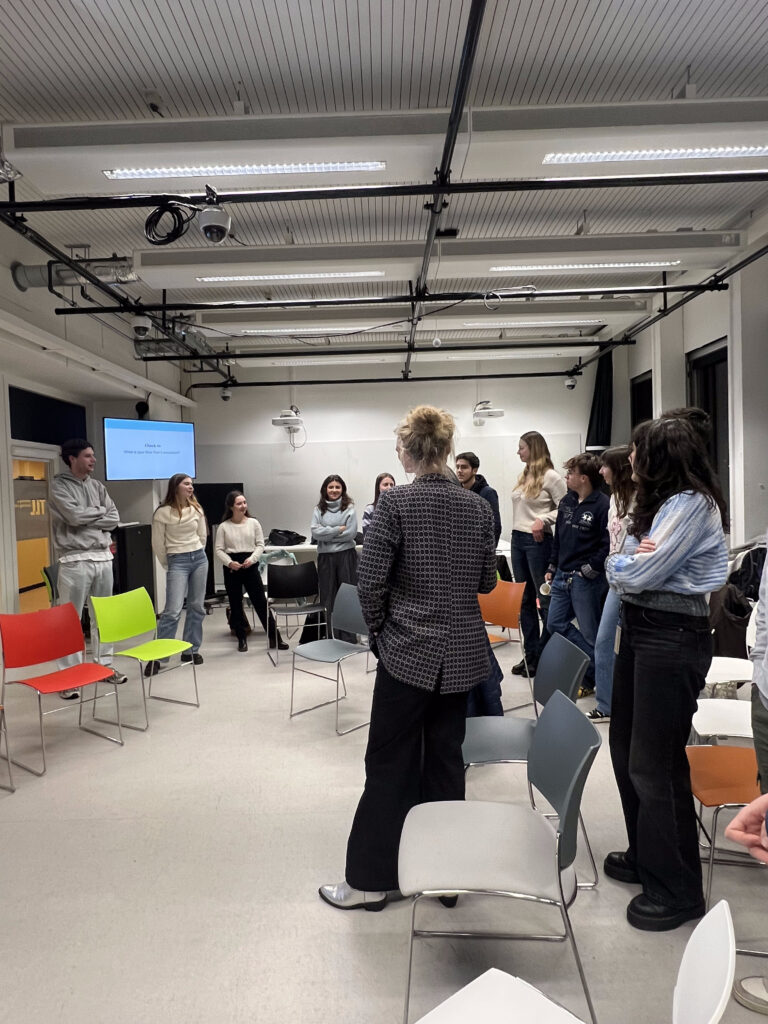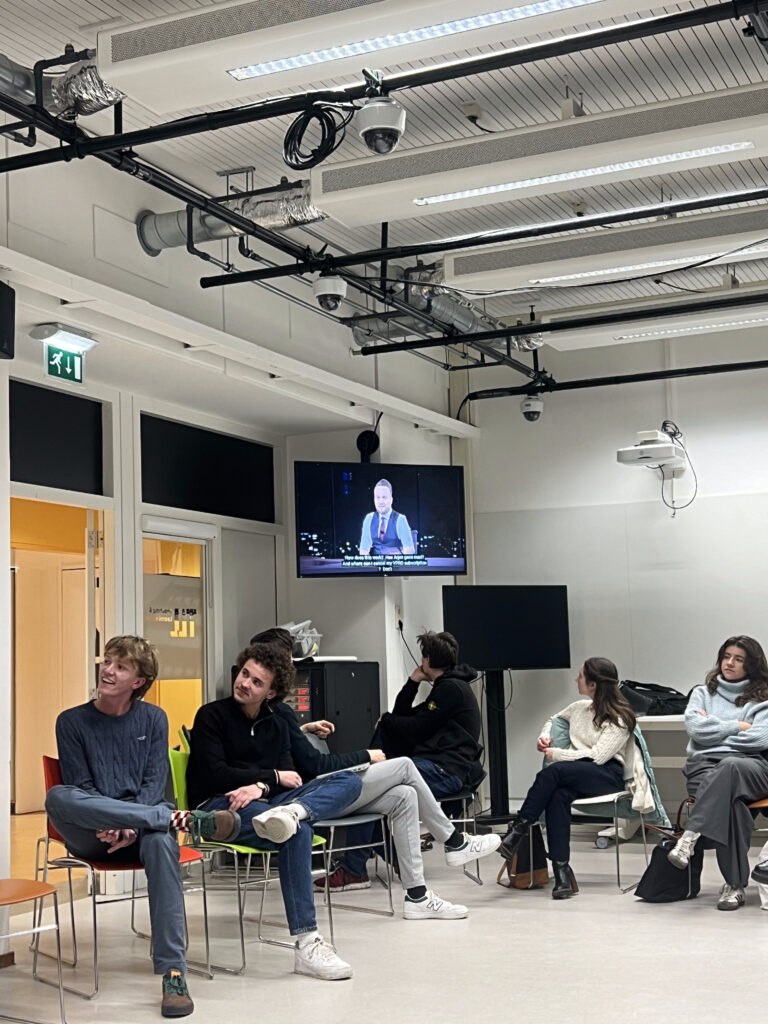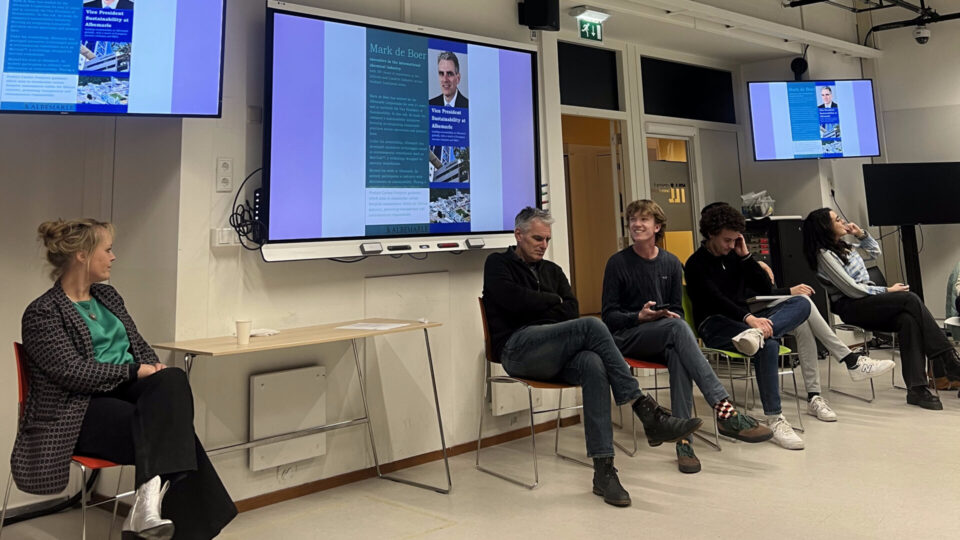On January 9, we listened to a guest lecture by Kirsten Hund and Mark de Boer. Hund and de Boer both work in the mining sector. The global mining sector is closely linked to many current themes. From the environment and sustainability to geopolitics and social issues.



The mining world is full of prejudices and stereotypes. Some turned out to be completely untrue, according to an enlightening explanation by Hund and de Boer. For example, occupational safety rules appear to be strictly regulated, and child labor is out of the question at large mining companies.
However, sustainability and the environment appear to be complex themes. Lithium mining in particular is polluting, and social equality is challenged. Since lithium is necessary for the production of batteries, in combination with a global process of electrification, creates a mutual dependency. These types of complex cycles, with adverse effects for people and the environment, are difficult to break.
Finally, it was interesting to look at the mining sector from the perspective of geopolitics. Since mining and rare earth metals are used in complex industrialized production, they are necessary for economic growth and geopolitical power. Currently, China has many essential mines, while Europe has closed mines in recent decades.
There is therefore a political call to revive the mining sector in Europe. However, this is proving to be a difficult task; opening a new mine after the discovery of essential minerals takes an average of 10 years. In addition, mining in Europe can pose a threat to the habitats of indigenous peoples, such as the Sami population in Scandinavia.
This article was written by Tiemko Jenniskens, Da Vinci Project 2024-2025 student

